September 23, 2014 •
Tuesday Lobbying and Campaign Finance News Update
Lobbying “Bottom Line” in The Hill. Oklahoma: “State Capitol lobbyist Bart McSpadden dead at 46” by Mark Friedel in the Claremore Daily Progress. Campaign Finance “Democrats relying on big donors to win” by Kenneth P. Vogel and Tarini Parti in […]
 Lobbying
Lobbying
“Bottom Line” in The Hill.
Oklahoma: “State Capitol lobbyist Bart McSpadden dead at 46” by Mark Friedel in the Claremore Daily Progress.
Campaign Finance
“Democrats relying on big donors to win” by Kenneth P. Vogel and Tarini Parti in Politico.
“FEC Chairman Talks ‘Dark Money’ and the Fine Line Between Free Speech and Censorship” by Elizabeth Nolan Brown in Reason.com.
“Is there a right to contribute to out-of-state elections?” by William Baude in The Washington Post.
Massachusetts: “Massachusetts governor’s race has range of cash sources” by Steve Leblanc in the Portland Press Herald.
Massachusetts: “Pro-casino group ramping up campaign spending” by The Associated Press in the Boston Herald.
New Jersey: “N.J. assemblyman wants to end restrictions on campaign donations, lobbying: The Auditor” in NJ.com.
Winnipeg, Canada: “The money behind the politics: Winnipeg’s most generous political donors” by Joanne Levasseur and Sean Kavanagh in CBC News.
Ethics
Tallahassee, Florida: “City approves 2015 budget, more ethics standards” by TaMaryn Waters in the Tallahassee Democrat.
Elections
California: “A show of disunity at California GOP convention” by Michael Finnegan and Seema Mehta in the Los Angeles Times.
California: “AM Alert: Democrats’ legislative supermajority hinges on several key races” by Alexei Koseff in the Fresno Bee.
Michigan: “Michigan GOP Gov. Rick Snyder Has Created an Opening for His Opponent” by Alan Greenblatt in Governing.
Minnesota: “Unions will play key role in Dayton re-election bid” by Ricardo Lopez in the Star Tribune.
Legislative Sessions
Alaska: “Alaska legislative committee reviews progress on crime-reduction bill” by Jerzy Shedlock in the Alaska Dispatch News.
September 22, 2014 •
Former Connecticut Governor Convicted of Campaign Finance Violations
Former Gov. John G. Rowland was convicted Friday in federal court on seven counts of corrupt political acts. The charges, including obstructing justice, conspiracy, and falsifying documents, followed Rowland’s connection to the congressional campaigns of Lisa Wilson-Foley in 2012 and […]
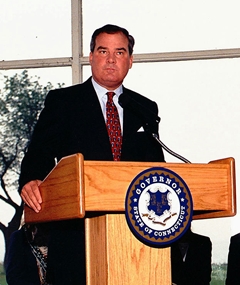 Former Gov. John G. Rowland was convicted Friday in federal court on seven counts of corrupt political acts. The charges, including obstructing justice, conspiracy, and falsifying documents, followed Rowland’s connection to the congressional campaigns of Lisa Wilson-Foley in 2012 and Mark Greenberg in 2010.
Former Gov. John G. Rowland was convicted Friday in federal court on seven counts of corrupt political acts. The charges, including obstructing justice, conspiracy, and falsifying documents, followed Rowland’s connection to the congressional campaigns of Lisa Wilson-Foley in 2012 and Mark Greenberg in 2010.
Foley pleaded guilty to related crimes earlier this year and is awaiting sentencing. The obstruction charge in relation to Greenberg’s campaign centered around a contract presented to Greenberg by Rowland. Greenberg testified he was not interested and tore up the contract.
Facing a maximum of 57 years in prison, Rowland will be sentenced on December 12.
Photo of former Gov. John G. Rowland by CT State Library on Wikimedia Commons.
September 22, 2014 •
Head of Kentucky’s Campaign Finance Registry Will Retire Later This Year
The executive director of the Kentucky Registry of Election Finance is stepping down. Sarah Jackson, who has held the position since 1999, announced her retirement effective November 1. During her tenure, Jackson expanded the state’s electronic campaign finance reporting program […]
 The executive director of the Kentucky Registry of Election Finance is stepping down. Sarah Jackson, who has held the position since 1999, announced her retirement effective November 1.
The executive director of the Kentucky Registry of Election Finance is stepping down. Sarah Jackson, who has held the position since 1999, announced her retirement effective November 1.
During her tenure, Jackson expanded the state’s electronic campaign finance reporting program and established an online searchable database.
Rebecca Feland, a budget analyst with the Registry, has been named the interim director.
September 22, 2014 •
Changes to Providence Lobbying Ordinance Opposed
Proposed changes to the Providence, Rhode Island lobbying law are drawing criticism from various civic groups. In a letter dated September 18 to the City Council, 11 nonprofit and community organizations urge the rejection of the proposal. The letter argues […]
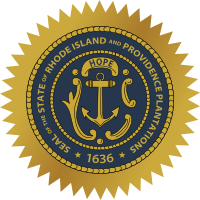 Proposed changes to the Providence, Rhode Island lobbying law are drawing criticism from various civic groups.
Proposed changes to the Providence, Rhode Island lobbying law are drawing criticism from various civic groups.
In a letter dated September 18 to the City Council, 11 nonprofit and community organizations urge the rejection of the proposal. The letter argues the proposed expansions effectively “discourage community activism” by “aiming explicitly at organizations that rely on non-compensated volunteers to advocate for the community.”
Samuel Zurier, the ordinance’s sponsor, claims the ordinance and amendments are “within the mainstream of what other [municipalities] do,” according to the Providence Journal. If passed, the changes would take effect on January 1, 2015.
September 22, 2014 •
Monday News Roundup
Lobbying Connecticut: “Ethics Commission selects 10 lobbyists for audit” in Hartford Business. Georgia: “New Ga. lobbying rules allow for summer travel” by The Associated Press in the Washington Times. Illinois: “Rauner proposes cooling-off period before lobbying” by Kurt Erickson in […]
 Lobbying
Lobbying
Connecticut: “Ethics Commission selects 10 lobbyists for audit” in Hartford Business.
Georgia: “New Ga. lobbying rules allow for summer travel” by The Associated Press in the Washington Times.
Illinois: “Rauner proposes cooling-off period before lobbying” by Kurt Erickson in the Herald & Review.
Rhode Island: “Violation found in 38 Studios lobbying case” by The Associated Press in the Boston Herald.
Rhode Island: “Groups challenge proposed changes for those lobbying Providence City Council” by John Hill in the Providence Journal.
Texas: “Todd Staples named president of Texas oil and gas lobbying group” by Nicholas Sakelaris in the Dallas Business Journal.
Minnesota: “Minnesota Farm Bureau Members Lobbying Congress” on WNAX.com.
Campaign Finance
“Exclusive: Lois Lerner breaks silence” by Rachael Bade in Politico.
“Campaign finance disclosures show billionaires opening their wallets” by Philip Elliott (Associated Press) in The Register-Guard.
“What’s Next for Campaign Finance Reform?” by Meredith McGehee (Campaign Legal Center) in The Huffington Post.
California (San Diego): “Crackdown coming on campaign cash?” by David Garrick in The San Diego Union-Tribune.
Connecticut: “Rowland, Ex-Connecticut Governor, Is Convicted in Campaign Finance Case” by Alison Leigh Cowan in The New York Times.
Massachusetts: “Candidates for governor target supporters for cash” by The Associated Press in the Boston Herald.
New York City: “Campaign Finance Board wants earlier payments to candidates” by Sally Goldenberg in Capital New York.
Ethics
Georgia: “Georgia legislators hit the beach: Lobbying limits exempt pricey travel, conventions on Georgia, Florida coasts for state lawmakers” by James Salzer in The Atlanta Journal-Constitution.
Hawaii: “Hawaii Ethics Commission Urged to Release Board Members’ Financial Disclosures” by Nathan Eagle in the Honolulu Civil Beat.
Kentucky: “Kentucky Election Finance Leader Retiring” by Phillip M. Bailey on WFPL News.
North Carolina: “Assessing The State Ethics Commission” by Will Michaels and Frank Stasio in WUNC North Carolina Public Radio.
Congress
“Congressional Hits and Misses: Week of September 15 (Video)” by JM Rieger in Roll Call.
State Legislatures
Virginia: “Va. legislators approve budget deal, reject Medicaid expansion” by Laura Vozzella and Rachel Weiner in The Washington Post.
West Virginia: “Parole law retroactivity contentious” by Andrea Lannom in the Charleston Daily Mail.
Political Advertising
“The Best TV Shows for Political Advertisements” by Abby Livingston in Roll Call.
Colorado: “Negative campaign ads dominate Colorado Senate race” by Katie Kuntz in The Gazette.
Minnesota: “Minnesota is the state of political hockey ads” by Bob Collins on Minnesota Public Radio.
Tech and Social Media
“Play of the Day: How to Use Twitter if You’re a Politician (Jimmy Fallon)” by Reena Flores in Government Executive.
September 19, 2014 •
Pennsylvania Regulatory Commission Rejects Lobbyist Fee Increase
The Independent Regulatory Review Commission (IRRC) rejected the Department of State’s proposed increase to the biennial lobbyist registration fee. The proposal called for an increase from $200 to $400 for lobbyists, lobbying firms, and principals. The Department of State believed […]
 The Independent Regulatory Review Commission (IRRC) rejected the Department of State’s proposed increase to the biennial lobbyist registration fee. The proposal called for an increase from $200 to $400 for lobbyists, lobbying firms, and principals.
The Independent Regulatory Review Commission (IRRC) rejected the Department of State’s proposed increase to the biennial lobbyist registration fee. The proposal called for an increase from $200 to $400 for lobbyists, lobbying firms, and principals.
The Department of State believed the higher fees were needed to offset increased costs associated with the lobbyist registration database and website. The IRRC disapproved the increase following testimony stating it would be too burdensome on smaller companies and the general public, creating a disincentive to engaging in the lawmaking process.
September 19, 2014 •
State and Federal Communications Supports the Blue Line!
State and Federal Communications is a proud sponsor of the 2014 Akron Marathon, which will be held on Saturday, September 27. You can see our banner right in front of Canal Park’s Team Shop. We wish all the participants a […]
State and Federal Communications is a proud sponsor of the 2014 Akron Marathon, which will be held on Saturday, September 27. You can see our banner right in front of Canal Park’s Team Shop. We wish all the participants a wonderful experience. Good luck!

September 19, 2014 •
News You Can Use Digest – September 19, 2014
National: Wealthy Citizens Have More Clout in State Government, but Stricter Lobbying Rules Can Help Close the Gap, Baylor Study Finds Baylor University – Terry Goodrich | Published: 9/16/2014 Baylor University political science professor Patrick Flavin found state lawmakers are more […]

National:
Baylor University – Terry Goodrich | Published: 9/16/2014
Baylor University political science professor Patrick Flavin found state lawmakers are more attentive to the political opinions of the wealthy than those of poor people when making policy decisions, but stricter regulations on professional lobbyists can help curb this trend and promote more equal representation. “… Disadvantaged citizens do not enjoy the same level of representation among professional lobbyists [as the wealthy], and correspondingly exert less influence over the policy decisions made by elected officials,” said Flavin.
Federal:
Judge Mulls SEC Limits on Political Donations
Politico – Josh Gerstein | Published: 9/12/2014
A federal judge questioned whether two state Republican parties have legal standing to challenge a Securities and Exchange Commission (SEC) rule that puts some restrictions on asset managers when they make campaign contributions. The New York and Tennessee Republican parties filed a lawsuit against the SEC in August over the 2010 rule, arguing it impedes free speech. They are seeking a preliminary injunction against the rule. Howell also said the SEC’s rule, aimed at reining in donations intended to help investment advisers win business from state-controlled endowments or pension funds, was vague, especially when it comes to preventing indirect contributions.
Tommy Boggs Helped Create Modern World of D.C. Lobbying
Politico – Byron Tau and Anna Palmer | Published: 9/15/2014
Thomas H. Boggs, Jr., who was a pioneer in melding the practice of law and lobbying and led the prominent lobbying shop Patton Boggs for many years, has died at age 73. Few people were as acquainted with power and influence as Boggs, whose father was Democratic majority leader in the U.S. House and whose mother served nine terms in Congress. Starting in the 1960s, when lobbying was often a one-man operation or done by a trade association, Boggs helped transform the profession into a multibillion-dollar enterprise that seeks a vast array of public policy goals.
From the States and Municipalities:
Arizona – State Supreme Court to Rule on Campaign Finance Disclosure Requirements
East Valley Tribune – Howard Fischer (Capitol Media Services) | Published: 9/15/2014
The Committee for Justice and Fairness is asking the Arizona Supreme Court to decide when groups running attack ads against candidates have to disclose who is financing the effort. The committee wants the justices to rule that only groups which run commercials specifically asking viewers to vote for or against someone must spell out the source of the money. What the court ultimately decides will govern what voters know about who is behind the attack ads they will see for years to come.
Arkansas – Why Some Say Arkansas’ Ethics Reform Is a Trojan Horse
Governing Magazine – J.B. Wogan | Published: 9/11/2014
Issue 3 on the November ballot in Arkansas would ban lobbyist gifts to state officials, prohibit direct corporate contributions to candidates, and lengthen the time period before former lawmakers can become lobbyists. But those lobbying and campaign finance reforms have received little attention in the campaign, mostly because another provision would extend term limits for state lawmakers. Because the measure would make several changes at once, it has a long, complicated ballot title and the bill itself is 22 pages, with the term-limits portion tucked away on the 16th page. The length and complexity of the measure has invited speculation that its authors intended to obfuscate its impact on term limits.
Colorado – Ted Olson Argues Citizens United Case in Denver Court
Denver Post – John Frank | Published: 9/16/2014
The conservative organization credited – or blamed – with bringing a flood of money into politics argued in federal court it should be allowed to produce and advertise a film that criticizes Colorado Gov. John Hickenlooper without disclosing who paid for it. Attorneys for Citizens United argued “Rocky Mountain Heist” is a news product and the organization itself should be considered a media outlet with the same protections as members of the press. The urgency of the ruling is heightened with the election seven weeks away.
Connecticut – Panel Condemns NU Exec’s Pro-Malloy Solicitation as ‘Offensive’ – But Finds No Violation
Hartford Courant – Jon Lender | Published: 9/16/2014
The State Elections Enforcement Commission dismissed a complaint against Northeast Utilities Chief Executive Officer Thomas May, but not before offering some harsh criticism of the solicitation the state contractor sent to his employees. Connecticut law prohibits state contractors from contributing to state party accounts or the campaigns of statewide candidates. Even though the email solicitation mentioned Malloy’s accomplishments at length, the commission was unable to find May violated the law because the money went to the party’s federal account.
New York – Former Assemblyman Turned Informer Avoids Prison
New York Times – Benjamin Weiser | Published: 9/11/2014
Former New York Assemblyperson Nelson Castro will not serve any time in prison for making false statements because he “helped clean house” in state politics by cooperating in a lengthy corruption probe that resulted in the conviction of another state Assembly member and five others, said a federal judge. Castro began cooperating in 2009 while still a candidate almost immediately after he was told he was facing a perjury charge in a corruption investigation. For two terms in the Assembly, he wore a wire at times as part of his undercover work. He resigned office after his cooperation was revealed last year.
North Carolina – NC’s Political Watchdogs: The State Ethics Commission’s strengths and weaknesses
Carolina Public Press – John Ellston | Published: 9/17/2014
The Carolina Public Press said its review of the North Carolina Ethics Commission’s first seven years of operation found a bipartisan and vigorous effort to enforce ethics laws that is constrained by a lack of resources, strict confidentiality rules, and limited enforcement powers, and burdened by an ever-expanding mandate. The Public Press profiled the commission’s members, detailed the agency’s duties, and assessed what outside observers say are its strengths and weaknesses.
Ohio – Judge: Ohio politicians allowed to lie
USA Today – Chrissie Thompson (Cincinnati Enquirer) | Published: 9/11/2014
A federal judge struck down as unconstitutional an Ohio election law that banned candidates or independent organizations from lying in campaigns. U.S. District Court Judge Timothy Black ruled the law and its enforcement by the state Elections Commission are “inherently flawed” because the statute requires a government agency to decide whether a candidate or organization had lied in a commercial or billboard. “The answer to false statements in politics is not to force silence, but to encourage truthful speech in response, and to let the voters, not the government, decide what the political truth is,” wrote Black.
Texas – Campaigns, Consultants Disregard Ethics Commission Resolution
Houston Chronicle – David Saleh Rauf | Published: 9/11/2014
The Texas Ethics Commission adopted a resolution last year saying that campaigns should not use the agency’s sworn complaint process as a tool to smear an opposing candidate. But the resolution is a nonbinding decree that carries no enforcement muscle. So it appears that strategists from both parties have decided to disregard the sentiment of the commission in favor of trying to drum up headlines against their political rivals.
 State and Federal Communications produces a weekly summary of national news, offering more than 80 articles per week focused on ethics, lobbying, and campaign finance.
State and Federal Communications produces a weekly summary of national news, offering more than 80 articles per week focused on ethics, lobbying, and campaign finance.
September 18, 2014 •
Vermont Attorney General Asked to Clarify Campaign Finance Law
The pro-life group Vermont Right to Life Committee filed a complaint with the state’s attorney general’s office against Vermont Leads and its independent expenditure PAC, Vermont Leads Political Action Committee. The complaint alleges transfers of money between the two groups […]
 The pro-life group Vermont Right to Life Committee filed a complaint with the state’s attorney general’s office against Vermont Leads and its independent expenditure PAC, Vermont Leads Political Action Committee. The complaint alleges transfers of money between the two groups violate campaign finance laws.
The pro-life group Vermont Right to Life Committee filed a complaint with the state’s attorney general’s office against Vermont Leads and its independent expenditure PAC, Vermont Leads Political Action Committee. The complaint alleges transfers of money between the two groups violate campaign finance laws.
Act 90, enacted in January, states an independent expenditure PAC cannot be closely related to a political party or political committee if they make contributions to candidates. The treasurer of Vermont Right to Life Committee, Sharon Toborg, is asking the attorney general to clarify the statute’s language.
Assistant Attorney General Eve Jacobs-Carnahan believes the distinction will depend on communication between Vermont Leads and its PAC as well as their governance structure, activities, and spending.
September 18, 2014 •
FEC Working to Improve Its Website
The Federal Election Commission (FEC) is seeking input on the redesign of its website and access to its campaign finance data and information. The FEC held a public forum on September 17 to discuss the website improvement plans being made […]
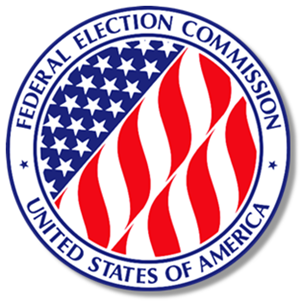 The Federal Election Commission (FEC) is seeking input on the redesign of its website and access to its campaign finance data and information. The FEC held a public forum on September 17 to discuss the website improvement plans being made in coordination with the General Services Administration (GSA). According to the FEC press release, one of Chairman Lee E. Goodman goals is “to make the data as visible and tailored to each individual website visitor as possible.”
The Federal Election Commission (FEC) is seeking input on the redesign of its website and access to its campaign finance data and information. The FEC held a public forum on September 17 to discuss the website improvement plans being made in coordination with the General Services Administration (GSA). According to the FEC press release, one of Chairman Lee E. Goodman goals is “to make the data as visible and tailored to each individual website visitor as possible.”
The GSA group working with the FEC is called 18F and describes itself as builders of “effective, user-centric digital services focused on the interaction between government [and] the people it serves.” Suggestions and ideas for website improvement may be submitted here.
September 18, 2014 •
Thursday News Roundup
Lobbying “Under Contract” in The Hill. “Anthony Weiner and the Revolving Door” by U.S. Sen. Elizabeth Warren in The Huffington Post. “Eric Cantor’s out, Wall Street’s still in” by Anna Palmer and Jake Sherman in Politico. “Lyft hires Gephardt’s K […]
 Lobbying
Lobbying
“Under Contract” in The Hill.
“Anthony Weiner and the Revolving Door” by U.S. Sen. Elizabeth Warren in The Huffington Post.
“Eric Cantor’s out, Wall Street’s still in” by Anna Palmer and Jake Sherman in Politico.
“Lyft hires Gephardt’s K Street firm” by Julian Hattem in The Hill.
Ontario, Canada: “McGuinty’s gig as a lobbyist problematic” by Andrew Coyne in the Leader-Post.
Campaign Finance
“Dems Getting Stingier With Campaign Cash to Colleagues” by Lalita Clozel on Open Secrets Blog.
Colorado: “Citizens United wants press exemption from CO campaign finance disclosure” by Tess Cheek in The Colorado Independent.
Georgia: “Atlanta City Council weighs in on campaign finance issue” by Dave Williams in the Atlanta Business Chronicle.
Rhode Island: “Law professors debate campaign finance reform” by Aliza Reisner in the Brown Daily Herald.
Ethics
Florida: “Florida Ethics Commission dismisses complaints against Mayor Brown and Clay County School Board officials, not so Rep. Fullwood case” by David Bauerlein in The Florida Times-Union.
Elections
“Bigger and Better Things: Staffers Who Run for Office” by Rebecca Gale in Roll Call.
“Dems, GOP hone messages for final campaign push” by Alexander Bolton in The Hill.
“5 States Put Voting Reform to the Voters” by J.B. Wogan in Governing.
Ohio: “John Kasich, Ed FitzGerald won’t debate, a first in Ohio gubernatorial contests since the late ’70s” by Robert Higgs in the Cleveland Plain Dealer.
State Legislatures
California: “Governor signs much-debated ridesharing bill” by Allen Young in the Sacramento Business Journal.
Nevada: “Education called top priority for Nevada Legislature” by Laura Myers in the Las Vegas Review-Journal.
Nevada: “Tesla triumphs: Sandoval signs off on$1.3 billion untax package” by Dennis Myers in the Reno News & Review.
North Dakota: “Western ND lawmakers want $800 million for development” by Jessica Holdman in the Bismarck Tribune.
Virginia: “Va. House of Delegates plans to vote on Medicaid expansion” by Laura Vozella in The Washington Post.
Tech and Social Media
“Tweets made easy for bankers lobbying lawmakers” by Greg Edwards in the St. Louis Business Journal.
“Twitter’s new guide for campaigners” by Darren Samuelsohn in Politico.
Tennessee: “Chattanooga Launches Website to Track City Goals” by Joy Lukachick Smith in Government Technology.
September 17, 2014 •
Governor of Mississippi Sets Special Election Date
A special election will be held on November 4 to fill the vacant state senate seat for District 17. Gov. Phil Bryant issued a Writ of Election after Sen. Terry Brown passed away earlier this month. The deadline to qualify […]
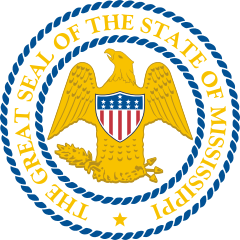 A special election will be held on November 4 to fill the vacant state senate seat for District 17. Gov. Phil Bryant issued a Writ of Election after Sen. Terry Brown passed away earlier this month.
A special election will be held on November 4 to fill the vacant state senate seat for District 17. Gov. Phil Bryant issued a Writ of Election after Sen. Terry Brown passed away earlier this month.
The deadline to qualify is October 6 and should a runoff election be necessary, it will be held November 25. The newly elected senator will complete Sen. Brown’s term ending January 2016.
September 17, 2014 •
New Vendor Registration Procedures in Miami-Dade County
The Internal Services Department in Miami-Dade County has combined the separate vendor enrollment and registration processes into one online vendor registration. The online vendor registration process can be accessed here. Paper based registrations are no longer accepted. All registered vendors […]
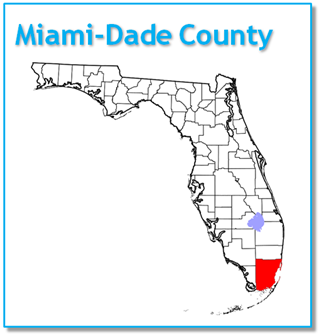 The Internal Services Department in Miami-Dade County has combined the separate vendor enrollment and registration processes into one online vendor registration. The online vendor registration process can be accessed here.
The Internal Services Department in Miami-Dade County has combined the separate vendor enrollment and registration processes into one online vendor registration. The online vendor registration process can be accessed here.
Paper based registrations are no longer accepted.
All registered vendors whose status was “Active” prior to September 15, 2014 will be able to update their existing registration profiles through this portal. An email containing the login information will be sent to each firm currently registered or enrolled. These vendors will only be required to log-in to the portal to establish an online, secure profile. Thereafter, the existing registration records will be available to them online.
Vendors still must return a notarized business entity registration application by regular mail.
September 17, 2014 •
South Carolina Sabb Wins Senate District 32 Primary Runoff
State Rep. Ronnie Sabb won the Democratic special primary runoff for Senate District 32 by receiving 58.7 percent of the vote against Williamsburg County Councilman Sam Floyd. With no Republican challengers, Sabb’s name will be the only one to appear […]
 State Rep. Ronnie Sabb won the Democratic special primary runoff for Senate District 32 by receiving 58.7 percent of the vote against Williamsburg County Councilman Sam Floyd. With no Republican challengers, Sabb’s name will be the only one to appear on the November ballot.
State Rep. Ronnie Sabb won the Democratic special primary runoff for Senate District 32 by receiving 58.7 percent of the vote against Williamsburg County Councilman Sam Floyd. With no Republican challengers, Sabb’s name will be the only one to appear on the November ballot.
A special election will then be held in early 2015 to fill Sabb’s House seat, which Floyd may pursue. The Senate District 32 special election became necessary when Lt. Gov. Yancey McGill vacated the seat to take his current position from Glenn McConnell, who resigned as lieutenant governor to become president of the College of Charleston.
Photo of Rep. Ronnie Sabb courtesy of the South Carolina Legislature website.
State and Federal Communications, Inc. provides research and consulting services for government relations professionals on lobbying laws, procurement lobbying laws, political contribution laws in the United States and Canada. Learn more by visiting stateandfed.com.


